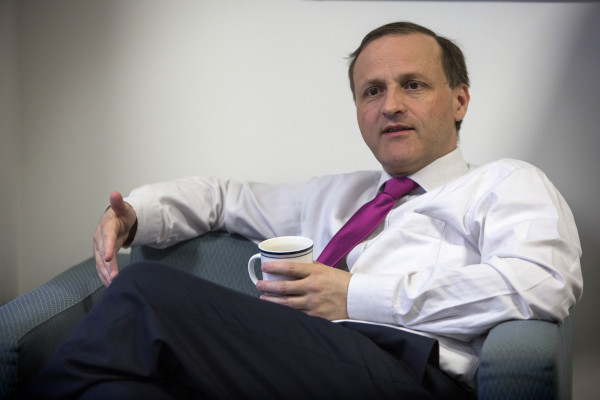

Royal London is calling on the government to make legislative changes to allow the creation of a 'care pension'.
The provider is pushing for a new financial product mixing drawdown and care insurance, as a potential solution for the long-term care funding problem.
According to a report published today (19 February) by the provider, the new product would have a structure "where the policy holder commits to pay a regular insurance premium directly from the drawdown account to the product provider".
In return for this, the product provider would guarantee to pay a certain amount into a 'care account' in the event that an individual had care needs above a certain threshold.
Money from this care account could be used to pay for approved care costs in line with the wishes of the policyholder, Royal London stated.
The provider is calling for the government, however, to give favourable tax treatment on money taken out of income drawdown to pay for care insurance.
At present, money taken out of pension saving is generally taxable apart from a 25 per cent tax-free lump sum.
Under Royal London's proposal, the money would leave the drawdown account but go direct to the insurer and would not be taxed.
Money paid into the care account and then used to pay care providers would similarly not be taxed.
The government is also asked to introduce an overall cap on people's lifetime care bills, so that insurers are not taking on an open-ended liability and can therefore offer more attractive premium levels.
Health minister Jackie Doyle-Price said in December that the £72,500 cap on social care will be scrapped.
Ms Doyle-Price told the Parliament that the government would not be "taking forward the previous government's plans to implement a cap on care costs in 2020".
Instead, there will be a process of "initial engagement over the coming months" to define the long-term reforms, which will be set out in a green paper due to be published in 2018.
Royal London's paper has been submitted to the government, and is under consideration by the team preparing the proposed green paper, the provider said.
According to Sir Steve Webb, director of policy at Royal London and author of the paper, more than one in four people will spend some time in later life in residential care, and the total bill can easily run into tens of thousands of pounds.
He said: "In extreme cases, people can be forced to sell their family home to pay for care.
"It ought to be possible to take out insurance against this risk, but insurers are reluctant to offer products and consumers have been reluctant to take them up.
"A 'care pension' could build on the increasingly popular income drawdown product by adding in care insurance. To make this work, the government would need to make sure payments into such policies were tax-free, and would need to introduce an overall cap on lifetime care costs.
"With these changes, millions of people could start to build up protection against the risk of facing catastrophic care costs in later life."
However, not all people agree that Sir Steve's proposal can solve UK's care issues.
Nathan Long, senior pension analyst at Hargreaves Lansdown, argued that having a single product solution to solve the problems of long-term care funding is like "using an earbud to clean an elephant".
He said: "Successive governments have continually kicked the can down the road rather than go toe to toe with the complexities of the problem.
"There really are no easy answers, but fundamentally any solution must first tackle the huge public misunderstanding of the potential cost of care and the likelihood of actually needing it.
"Whilst people's awareness may increase over time as more and more people experience their parents paying for care, the reality is a major intervention is needed.
"Tax free pension pay-outs to fund care costs has potential as a long-term solution, but there are far bigger challenges that need to be met first."
maria.espadinha@ft.com



